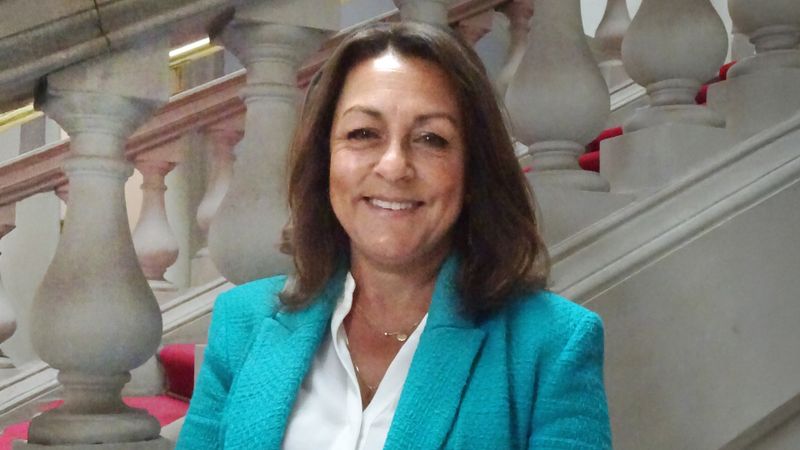Firstly, there is a strength in a ‘Kent Together’-style partnership of agencies and organisations, as demonstrated during the pandemic. Secondly, wherever people reach out for assistance, they are supported to find the right help. And thirdly, the understanding that everyone’s crisis is different but no less detrimental.
The meeting agreed the economic environment is a rapidly-changing one and while significant central government interventions like the energy unit cap for households and businesses was welcome, people will require additional support this winter as they struggle with very personal financial hardship being created by a growing number of factors, such as rising food bills and mortgage rates.
Leader Roger Gough met with borough and district counterparts across the county earlier this month to agree that the financial hardship task and finish group, incorporating vital voluntary and community groups, will move as one as it did during Covid, using data and analysis to target its combined resources in a coordinated and effective way against the impact of severe economic pressures.

“There is a shape-shifting nature to this crisis and we will need to remain fleet of foot. We and other key statutory organisations need to be very alive to this and align, work in a structured way and seek to best address this situation for the people of Kent over the coming weeks and months.”
Leader of Kent County Council, Roger Gough said:
"There is a shape-shifting nature to this crisis and we will need to remain fleet of foot. We and other key statutory organisations need to be very alive to this and align, work in a structured way and seek to best address this situation for the people of Kent over the coming weeks and months."
"People who are under pressure and in distress may come to a whole variety of organisations for help, which might initially not be the right one or their needs are more complex. We adopted the ‘Kent Together’ approach during the pandemic and the right things were done in the right places. A lot was delivered both by district and borough councils and indeed by community groups and parishes and that remains really important. There are different levels at which this can and should be done.”
The ReferKent project, a pilot since July, officially launches today and will play a critical role as one of a number of initiatives in the Financial Hardship Programme.
"All too often in the past, they were signposted, they got lost in the system, they lost heart and their needs were not met. ReferKent importantly ensures they are correctly referred, that referral is carefully followed through and the right help is given."
A meeting in relation to the new Kent and Medway Integrated Care System is due in a few weeks and will also be focused on the potential wider health and welfare ramifications of the cost of living crisis and how all partners can step in to start changing outcomes.
As well as core interventions like free school meals and food and energy vouchers, which will be once again distributed when the Treasury gives the go head for the third round of the Household Support Fund, it will be social interactions like local community wardens who will be able to make the difference when people in difficult circumstances might not have the mental resilience to put good advice into practice.
Deputy Cabinet Member for Communications and Engagement Cllr Jeremy Kite said:
"Every contact we make with individuals across Kent now has to have that awareness of the possibility of a cost of living vulnerability. As Kent Together during the pandemic, we galvanised ourselves and used every asset at our disposal to make sure we left no one behind and left no question unasked. With everything we do there has to be an understanding; however wealthy someone appears on the surface, however sorted their lifestyle seems, we need to ask those big questions about whether underneath there is a key problem there that we can help with."
Initiatives already in place or currently being developed include:
- Household Support Fund (HSF) round three – voucher support over the winter for food and energy bills, subject to direction from central government
- Pop-up debt advice hubs – run in conjunction with the Citizens Advice to give people overwhelmed by their financial situation pathways out of debt
- Underwritten loans – another partnership project with Citizens Advice and Wave Community Bank (Kent Savers), where residents can access 0% interest loans to help consolidate high interest debt with supportive training for future money management
- Bed poverty – this project aims to provide children of Kent with a safe space to sleep and a bed of their own. Some Kent families are unable to afford the basic essential needs for their children
- Kent Community Warden Service – trusted community faces identifying, advocate for and ensuring vulnerable people have access to all the help and support they need
- Kent Support And Assistance Service (KSAS) – demand has increased for this welfare scheme for people experiencing a short-term crisis or emergency
- There are also projects running under the Digital Kent banner to improve digital exclusion including gifted 4G routers and laptops for eligible people via referral as well as social tariff broadband.
ENDS.
Note for editors
- Find out more about ReferKent and looping in as an organisation
- More information can be found on the Kent Together website
- There is also a national Help For Households cost of living support portal
- Watch the Cabinet meeting
- KCC’s cost of living response report will be discussed at the deferred full council on 20 October.




